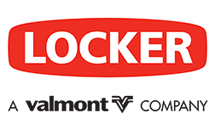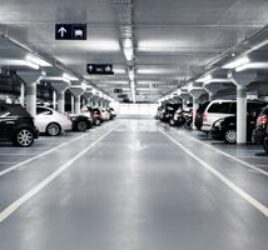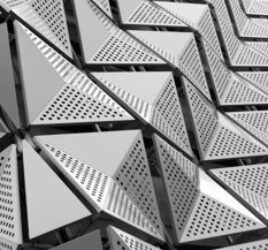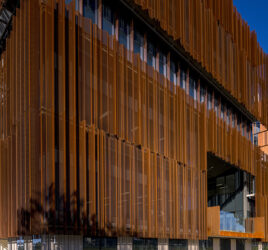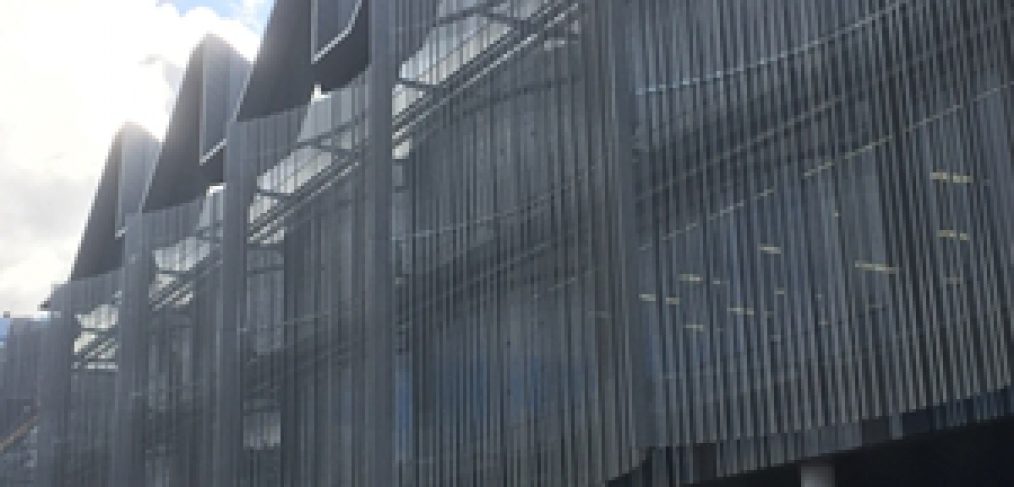
Case study: Monash University Clayton
The new Learning and Teaching building at the Clayton campus of Monash University was recently completed. John Wardle Architects designed the building and utilised perforated metal products from Locker Group to create the facade. The folded perforated metal facade covers all sides of this four-storey building and acts as a sunshade without hindering visibility from the inside out. It was no small project, and there were a number of hurdles on the way to completing this truly stunning project.
What were the requirements of this project?
Monash University made a commitment to sustainability, and implemented goals to reduce its carbon footprint. Since their buildings make up an approximate 80 per cent of their emissions, sustainability was a priority for Monash University in constructing the Clayton campus. The zinc sheets that make up the facade played into this. Zinc is easy to recycle, as it retains its integrity and performance properties so it can be reused. The International Zinc Association states that 95 per cent of zinc products used in buildings are recycled.
The facility is truly state of the art. With collaborative and unconventional learning spaces throughout, the campus reflects new ways of approaching education. As a cutting-edge education facility, it was important that the facade of the building was as unique as the spaces inside. This is why Monash University partnered with the award-winning John Wardle Architects, who in turn utilised products from Locker Group's extensive portfolio to give the building its flair.

Which Locker Group products were used?
While Locker Group supplied perforated sheets for the entire facade, it's not actually a single uniform product the entire way around. The large sheets covering the north, east and west sides of the building had three different perforation patterns per sheet. For the parts of the facade that cover windows, a profile with 50 per cent open area was used. Often, smaller profiles can play with your eyes, and so the chosen profile was to allow occupants of the building to see clearly out the windows. The other profiles used on these sheets had a much lower open area, in order to act as weather shielding. The south facing side of the building has one uniform perforation pattern.
The sheets are made of 99.9% pure zinc. As a natural material, zinc requires minimal maintenance over time due to the self-protective patina that forms over the metal to maintain surface integrity. Zinc has a tendency to age gracefully, which combined with its strength, is why it has been a popular roofing material in Europe for over 150 years.

What were the challenges in producing these sheets?
Locker Group's manufacturing team had to get creative in producing the zinc sheets. The facade is approximately 11 metres tall, and the architects wanted as little joinery and steelwork as possible. We were able to produce sheets large enough that only two would be required to span the height of the facade.
In order to keep the steelwork down, these were fixed to three beams running perpendicular to the sheets, and each sheet was fixed only at the top and bottom. Since zinc is fairly lightweight, this was more than sufficient support to hold the panels in place. Since they were being folded in a unique way, they became more rigid, meaning we could make them longer and minimise the steelwork as per the designers preference.
To give you an idea of the scale of this facade, which envelops the building, approximately 1,552 panels were used, which is equal to about 95 tonnes of metal. The perforated zinc panels were folded in such a way that they spanned approximately 8.5 thousand square metres on a surface only 4.5 thousand square metres in size.

The finished result
The completed project is a facade that really catches the eye. You might be impressed by our photos, but they in no way compare to how grand this building looks when you stand in front of it. The zinc is simply beautiful, and it will look better and better over time, offering something special and unique to every new generation of students and educators that use it. Locker Group is proud to have supplied the materials that give the building's exterior its character. Although manufacturing the sheets wasn't easy, we can find the solutions necessary to deliver our clients metal products that stand up on the world stage.
Whatever it is you need to give your next project a unique visual character without sacrificing functionality, Locker Group has the expertise to make it happen. For more information, contact us now, or check out more of our work via the link below.
